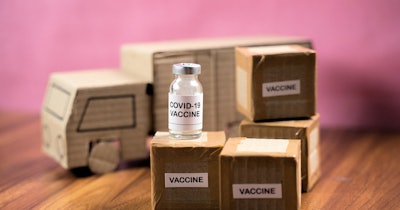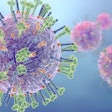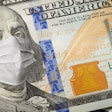
Decades before the COVID-19 pandemic, the U.S. government invested at least $337 million into critical research that led to mRNA COVID-19 vaccines. The government also paid $31.6 billion during the pandemic for vaccine research, production, and vaccines for all Americans.
The details, outlined in a study published Wednesday in BMJ, reveal that while the COVID-19 vaccines were developed with public funding, the profits were largely privatized.
Public investment in mRNA vaccine technology saved millions of lives, and may help address future pandemics and other diseases. Previous estimates of public funding for vaccines varied widely. A U.S. research team conducted the first study to systematically catalog direct pre-pandemic U.S. public investments in vaccines and assess how much the government invested in research leading to the vaccines’ development.
The team identified public funding from January 1985 to March 2022 through the National Institutes of Health (NIH) Research Portfolio Online Reporting Tool Expenditures and Results (RePORTER), the Department of Defense (DoD) contracts database, and the Biomedical Advanced Research and Development Authority (BARDA) Medical Countermeasures Portfolio.
NIH-funded grants were scored as directly, indirectly, or not related to four key innovations underlying COVID-19 vaccines: lipid nanoparticle, mRNA synthesis or modification, prefusion spike protein structure, and mRNA vaccine biotechnology.
Grants were grouped into pre-pandemic (1985-2019) or pandemic (2020-March 31, 2022). Researchers identified 34 NIH-funded research grants directly related to COVID-19 vaccines. These and other government grants and contracts totaled $31.9 billion, of which $337 million was invested before 2019.
Pre-pandemic, NIH invested $116 million in basic and translational science, while BARDA invested $148 million, and DoD invested $72 million into mRNA vaccine development and clinical trials.
Post-pandemic, $29.2 billion in U.S. public funds purchased vaccines, $2.2 billion supported clinical trials, and $108 million (<1%) supported manufacturing and science.
Since support from other countries, foundations, or companies was not included, the study likely underestimates the pre-pandemic investment of public funds. Nevertheless, the researchers believe it provides a robust yet conservative estimate.
Despite the success of vaccine development during the pandemic, the researchers say the substantial role of public funding justifies greater governmental efforts to assure equitable and affordable access to these life-saving vaccines. They recommend policy reforms -- including adding access, affordability, and equity conditions to government contracts, and having public funding agencies ensure that manufacturers make the products appropriately available for public health.
In an editorial, Yale School of Medicine sociologist and physician Dr. Victor Roy calls the vaccine development “a cautionary tale of a system in which the risks of pursuing innovation were socialized, while the lion’s share of rewards became privatized to corporate shareholders.”
He notes that Moderna and Pfizer accumulated more than $100 billion in global revenues from COVID-19 vaccine sales -- 20 times the World Health Organization’s total budget. His recommended alternate innovation strategies include directionality, conditionality, and public options.
“Instead of maximizing value for corporate shareholders, these alternatives would enable governments to translate public investments more fully in the service of public health -- a fundamental priority as we examine our response to this pandemic and prepare for the next,” writes Roy.



















